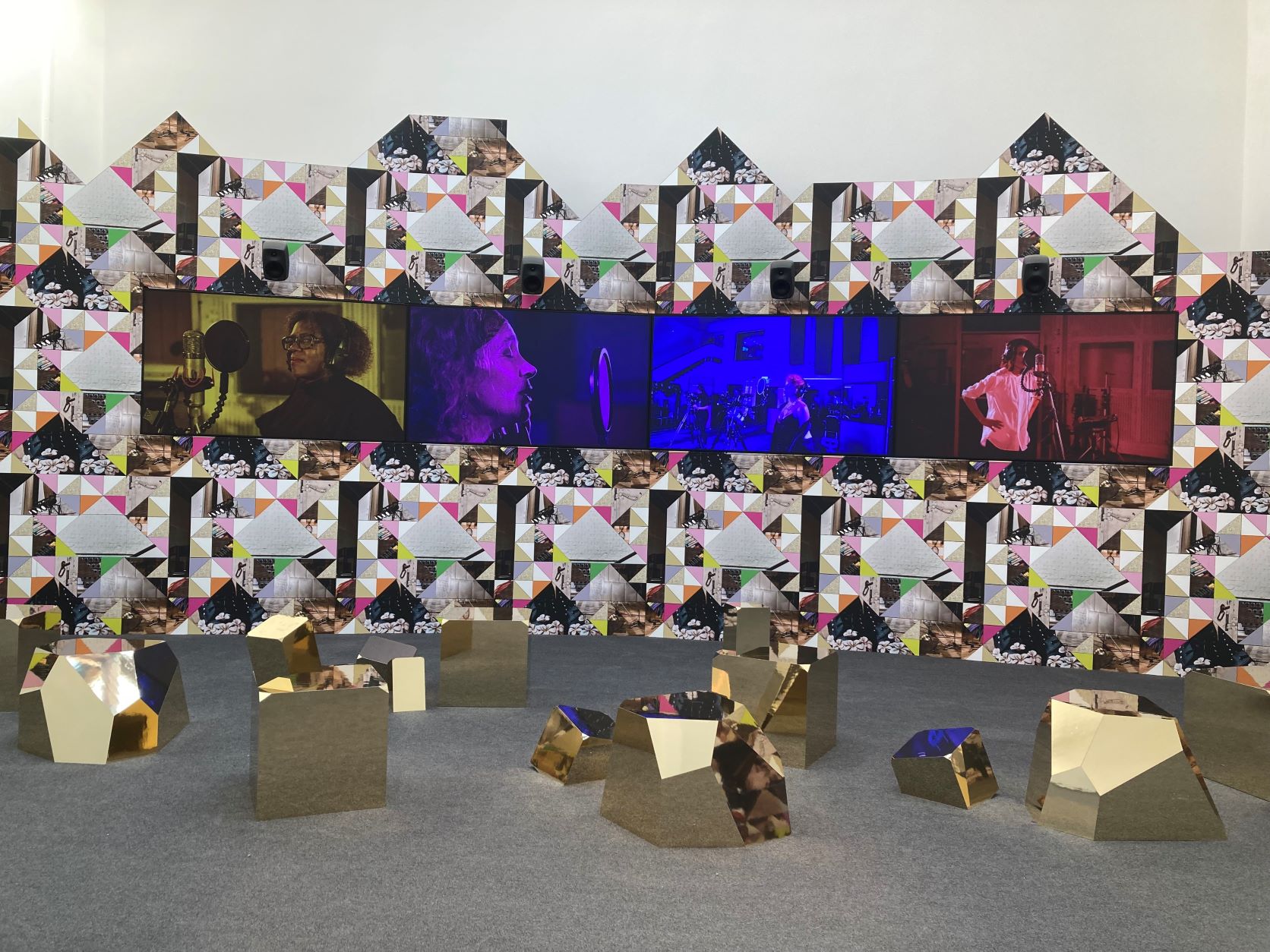We have a guest blog today from Lubumbe Van de Velde who is currently completing a British Council Venice Biennale Fellowship. CCCU sponsors one student every year to travel to the Biennale and conduct a piece of research while also working at the British Pavilion. We will be releasing information about the 2022/2023 programme in Autumn 2022.
Week 1 of my Venice Fellowship
Hi, my name is Lubumbe Van de Velde. I am this year’s CCCU Venice Fellow. I am one of seven fellows invigilating Sonia Boyce OBE’s exhibition entitled Feeling her way in the British Pavilion this month.
It is my first week in the Pavilion, and the question on everyone’s lips, regardless of whether they utter the question or not, is whether the women improvising in Room 1 of the Pavilion are Black.
Room 1 hosts a video installation with four screens. Each screen depicts a recording of a Black woman during an improvisation session at Abbey Road Studios in London.
The improvisation session is led by composer Errollyn Wallen CBE, who gives cues to singers Jacqui Dankworth MBE, Poppy Adjuha and Tanita Tikaram, encouraging them to play with their voices. To feel their way!
Are the three women Black? To illustrate, I want to relay a conversation I had with one of the visitors on Thursday, 19th May, while watching over the devotional collection in Room 4 of the Pavilion.
I was approached by an Israeli woman. Her nationality may be essential for context. She pointed to Errollyn Wallen and asked me whether the entire exhibition to devoted to one woman. My automatic response was that the exhibition celebrates Black Female Voices and their contributions to our lives and culture. The visitor then conferred with her friends and returned to me. May I ask another question? My answer was, of course, you may. She then pointed at Jacqui Dankworth and asked how she was Black.
It was then that I understood her question. But moreover, I must admit that I too had a similar question when the exhibition was first revealed to us a few days earlier. I, too, wondered how the women on the screens are Black? I grew up in Belgium, and for as long as I can remember, the term Black has been used as a derogative term to refer to people who look like me. Dark-skinned and at some point migrated from the African continent. Only recently have many come to reclaim Blackness and its diversity.
Sonia Boyce OBE’s use of the term Black provokes and challenges preconceived notions of Blackness. Feeling her way as a celebration of Black Female Voices forces us to think of Blackness as an identity, a politics and most importantly, to remember that Blackness is a construct that varies across its use in space and time.
 Arts and culture
Arts and culture Katie McGown
Katie McGown 960
960


